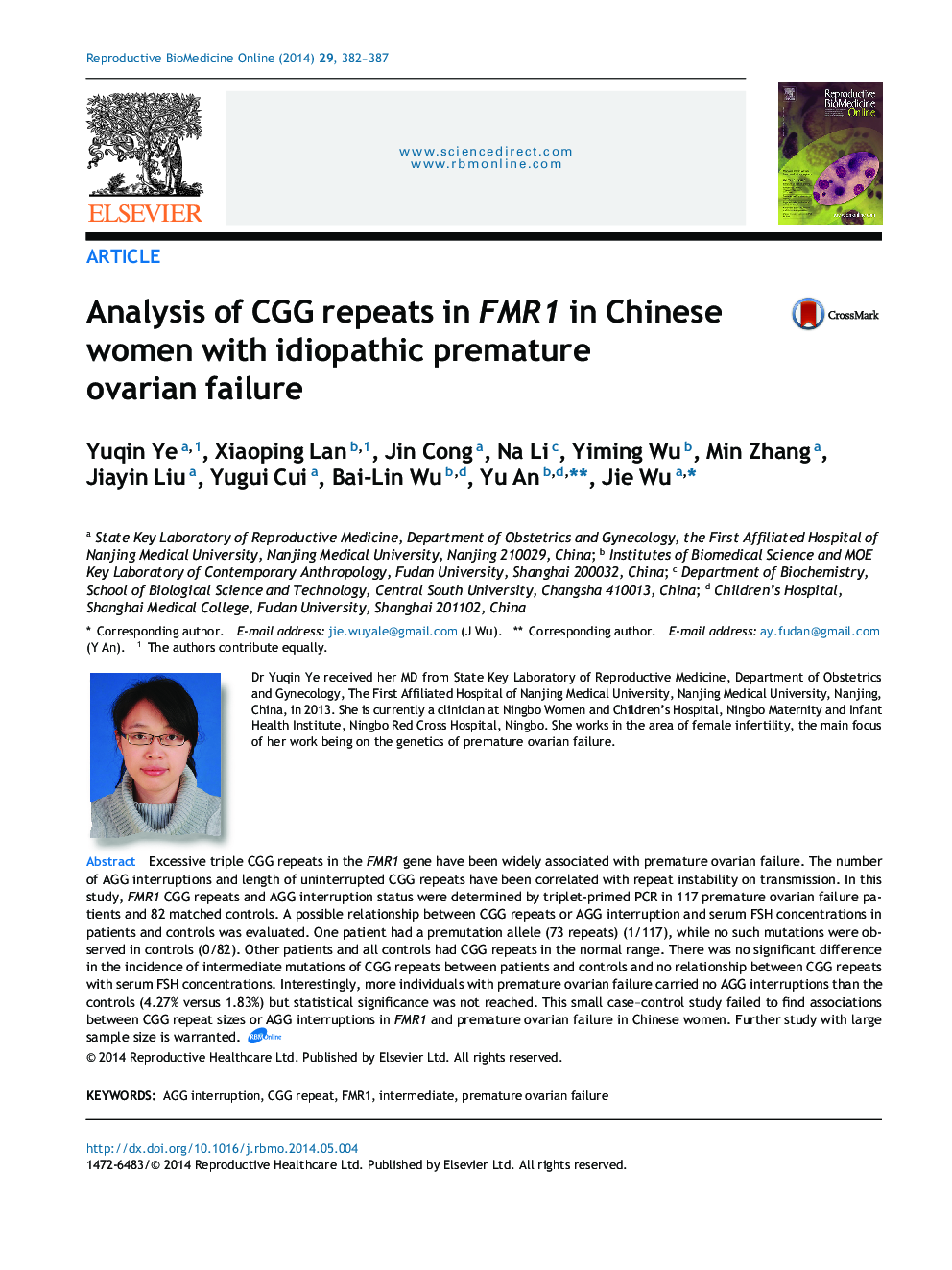| Article ID | Journal | Published Year | Pages | File Type |
|---|---|---|---|---|
| 3970128 | Reproductive BioMedicine Online | 2014 | 6 Pages |
Excessive triple CGG repeats in the FMR1 gene have been widely associated with premature ovarian failure. The number of AGG interruptions and length of uninterrupted CGG repeats have been correlated with repeat instability on transmission. In this study, FMR1 CGG repeats and AGG interruption status were determined by triplet-primed PCR in 117 premature ovarian failure patients and 82 matched controls. A possible relationship between CGG repeats or AGG interruption and serum FSH concentrations in patients and controls was evaluated. One patient had a premutation allele (73 repeats) (1/117), while no such mutations were observed in controls (0/82). Other patients and all controls had CGG repeats in the normal range. There was no significant difference in the incidence of intermediate mutations of CGG repeats between patients and controls and no relationship between CGG repeats with serum FSH concentrations. Interestingly, more individuals with premature ovarian failure carried no AGG interruptions than the controls (4.27% versus 1.83%) but statistical significance was not reached. This small case–control study failed to find associations between CGG repeat sizes or AGG interruptions in FMR1 and premature ovarian failure in Chinese women. Further study with large sample size is warranted.
